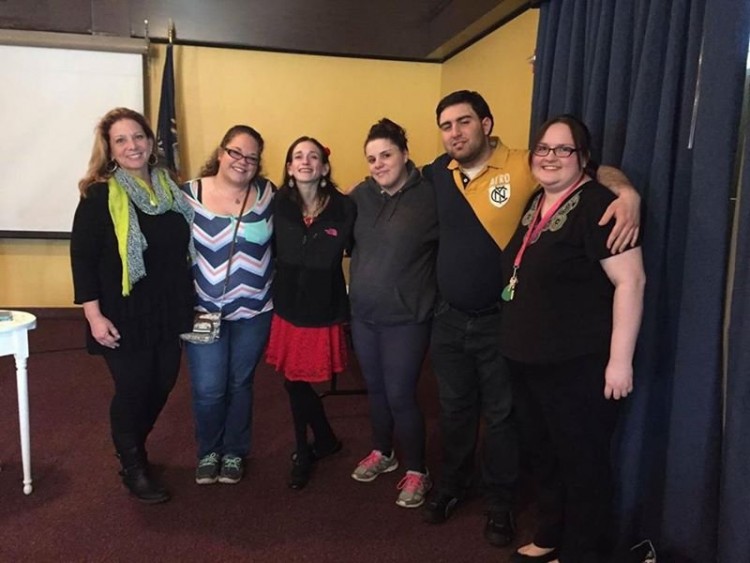Recently, I was asked by the student-run ABLE club at Fulton Montgomery Community College to present my mental health and disability advocacy program. “Able” is quite the understatement. Abilities Beyond Limitation through Education is “a club for students who wish to explore ways to make attending college easier for students with disabilities.” As soon as I met these students, I could see they more than exceeded this description.


I arrived on campus and was immediately welcomed by passionate student advocates, determined to create a campus community based on compassion and understanding — a campus that is clearly taking an empowered approach to mental health, standing up for their rights, and claiming their voices as young, fearless allies and leaders for all students. The ABLE group brought me to campus because they wanted to engage their peers in a conversation about mental health and make them aware of the wonderful accessibility resources available on campus. And for good reason — the resources available at FMCC were extremely impressive. With a range of housing options, warm and personable staff, and a range of activities, services and events, the question became what resources to learn about first. Both faculty and students were tremendously eager to tell me all about the various ways they are addressing mental health, wellness, and equal rights for everyone on campus.
Having quality accessibility services available to all is a cause very dear to my heart. As someone with an ostomy and various other medical needs, it’s even difficult for me — a gutsy, extroverted theater ham — to speak up for the accommodations I need. The students of ABLE are my new role models.
What did I learn speaking to FMCC? As Walt Disney once said, “All our dreams can come true, if we have the courage to pursue them.” These students certainly have courage and a dream. Haley, the president of the ABLE club, described her dream of being a disability advocate as passionately as my dream of being on the Broadway stage. This is a campus with ambition. But more importantly, I believe this is a campus with the right idea.
 Being able to reach out and find support is what helps us realize we’re not alone. Mental health resources can be the tools that create a path to a solution. When we ask for help, we can start to bridge the gap of communication between departments on campus — academia, career counseling, wellness resources, and student groups — and create a communicative, inclusive environment. Improving student mental health on campus is not a quick fix, or a one-size-fits-all job. We need to recognize that each student is unique, with their own set of needs, and each student needs to be heard. Let’s infuse our campuses with questions, start the conversation, and just keep listening. These are just a few of the lessons the Fulton-Montgomery Community College campus taught me this week. Thank you FMCC, for making us all aware that we are more ABLE than we know!
Being able to reach out and find support is what helps us realize we’re not alone. Mental health resources can be the tools that create a path to a solution. When we ask for help, we can start to bridge the gap of communication between departments on campus — academia, career counseling, wellness resources, and student groups — and create a communicative, inclusive environment. Improving student mental health on campus is not a quick fix, or a one-size-fits-all job. We need to recognize that each student is unique, with their own set of needs, and each student needs to be heard. Let’s infuse our campuses with questions, start the conversation, and just keep listening. These are just a few of the lessons the Fulton-Montgomery Community College campus taught me this week. Thank you FMCC, for making us all aware that we are more ABLE than we know!
Amy is touring the country with her one-woman musical Gutless & Grateful. Learn more about her college mental health program and sexual assault prevention initiative on her site, www.amyoes.com and see where she’ll be next.
The Mighty is asking the following: Share a conversation you’ve had that changed the way you think about disability, disease or mental illness. If you’d like to participate, please send a blog post to community@themighty.com. Please include a photo for the piece, a photo of yourself and 1-2 sentence bio. Check out our Submit a Story page for more about our submission guidelines.
